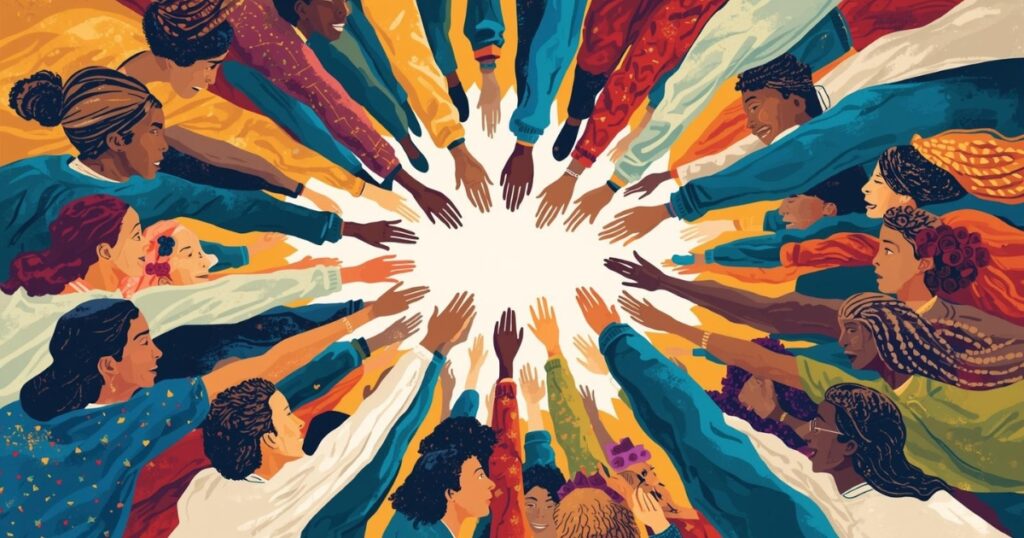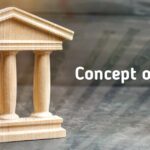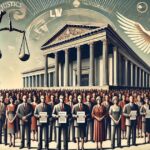Explore the core tenets of the liberal perspective of the state, including the balance between protecting individual freedoms and promoting social welfare and equality. Understand the key debates, critiques, and ongoing evolution of liberal thought on the appropriate scope and function of government.
In the realm of political ideology, the liberal perspective on the role of the state is both nuanced and deeply influential. Liberals generally view the state as a necessary entity to protect individual liberties, promote social welfare, and ensure a fair and equitable society. However, the degree to which the state should be involved in the lives of its citizens remains a subject of lively debate within the liberal camp.
This blog post will explore the core tenets of the liberal perspective on the state, critically evaluating its strengths, weaknesses, and the ongoing discussions surrounding the appropriate scope and function of government.
The Role of the State in Protecting Individual Freedoms:
At the heart of the liberal ideology is a profound belief in the inherent rights and freedoms of the individual.
Liberals argue that the primary role of the state should be to safeguard these fundamental liberties, ensuring that citizens can exercise their rights to life, liberty, and the pursuit of happiness without undue government interference.
This emphasis on individual autonomy stems from the Enlightenment principles that heavily influenced the development of liberal thought, particularly the ideas of philosophers such as John Locke and John Stuart Mill.
Liberals contend that the state should act as a neutral arbiter, protecting individuals from the tyranny of the majority or the abuse of power by those in authority.
The state, in this view, should ensure the protection of civil liberties, such as freedom of speech, freedom of religion, and freedom of assembly.
By limiting the state’s ability to infringe upon these rights, liberals believe that individuals can fully exercise their personal autonomy and participate in the democratic process as active, self-determining citizens.
The Promotion of Social Welfare and Equality:

While the protection of individual freedoms is a core tenet of liberalism, many liberals also recognize the importance of the state’s role in promoting social welfare and equality.
They argue that the state has a responsibility to address social and economic inequalities, ensuring that all citizens have access to necessities and opportunities for upward mobility.
This perspective is often associated with the concept of the “social welfare state,” in which the government provides a safety net of public services and social programs, such as universal healthcare, unemployment benefits, and subsidized housing.
Liberals contend that these measures not only alleviate poverty and improve the quality of life for the most vulnerable members of society but also contribute to greater social cohesion and economic stability.
Moreover, many liberals believe that the state should play an active role in promoting equality of opportunity, ensuring that individuals from diverse backgrounds have access to quality education, job training, and other resources that can help them achieve their full potential.
This may involve implementing policies such as affirmative action, progressive taxation, and targeted investment in underprivileged communities.
Balancing Individual Freedoms and Social Responsibilities:

The tension between the liberal emphasis on individual freedoms and the recognition of the state’s role in promoting social welfare and equality is a central and ongoing debate within the liberal tradition.
Liberals must grapple with the challenge of finding the right balance between these sometimes competing priorities.
On the one hand, liberals are wary of excessive state power and the potential for government overreach to infringe upon individual liberties.
They argue that the state should have a limited and well-defined scope, focusing on the protection of core rights and freedoms while minimizing its interference in the private lives of citizens.
On the other hand, liberals also acknowledge that unchecked individual freedoms can lead to the concentration of wealth and power, creating social and economic inequalities that undermine the principles of fairness and equal opportunity.
They contend that the state has a responsibility to intervene in certain areas, such as regulating the economy, providing public goods, and addressing market failures, to ensure a more just and equitable society.
This delicate balance between individual freedoms and social responsibilities is a constant source of discussion and debate within the liberal camp.
Different liberal thinkers and political movements have proposed various approaches to strike this balance, ranging from the classic liberalism of the 19th century to the more social-democratic models of the 20th and 21st centuries.
Critiques and Ongoing Debates
While the liberal perspective on the state has been highly influential in shaping modern political thought and policy, it has also faced significant criticism and ongoing debates.
One common critique is that the liberal emphasis on individual freedoms can sometimes come at the expense of collective social responsibility and the common good.
Critics argue that an excessive focus on individual autonomy can lead to a fragmented society, where citizens are more concerned with their own interests than the well-being of the community as a whole.
Additionally, some argue that the liberal vision of the state as a neutral arbiter is an idealistic notion that fails to account for how the state can be influenced by powerful economic and social interests.
They contend that the state is often used as a tool to perpetuate existing power structures and inequalities, rather than to address them.
Another ongoing debate within the liberal tradition is the question of the appropriate scope and size of the state.
Some liberals advocate for a more minimalist approach, with the state playing a limited role in the lives of citizens, while others argue for a more expansive welfare state that provides a comprehensive social safety net.
This tension has led to the emergence of various strands of liberalism, such as classical liberalism, social liberalism, and neoliberalism, each with its own perspective on the role of the state.
You Can Read: Concept of State in Political Science
Conclusion
The liberal perspective on the role of the state is a complex and multifaceted ideology that continues to shape political discourse and policy-making around the world.
At its core, liberalism emphasizes the importance of individual freedoms and the state’s responsibility to protect these liberties, while also recognizing the need for the state to promote social welfare and equality.
The ongoing debates within the liberal tradition highlight the challenges of balancing these sometimes competing priorities, as well as the need to continuously re-evaluate the appropriate scope and function of government in a rapidly changing social, economic, and political landscape.
As the world grapples with issues such as inequality, climate change, and the evolving role of technology, the liberal perspective on the state will undoubtedly continue to be a crucial part of the conversation, offering insights and solutions that can help build a more just, prosperous, and equitable society.
FAQs:
1. What are the core tenets of the liberal perspective on the role of the state?
The core tenets of the liberal perspective on the role of the state are the protection of individual freedoms and the promotion of social welfare and equality. Liberals believe the state should act as a neutral arbiter, safeguarding civil liberties while also addressing social and economic inequalities.
2. How do liberals view the state’s responsibility in protecting individual freedoms?
Liberals argue that the primary role of the state should be to safeguard the fundamental rights and liberties of individuals, ensuring that citizens can exercise their personal autonomy without undue interference from the government. This emphasis on individual freedom stems from Enlightenment principles that have heavily influenced liberal thought.
3. What is the liberal rationale for the state’s role in promoting social welfare and equality?
Many liberals believe the state has a responsibility to address social and economic inequalities, ensuring that all citizens have access to necessities and opportunities for upward mobility. They support the concept of a “social welfare state” that provides a safety net of public services and social programs to alleviate poverty and improve the quality of life for the most vulnerable members of society.
4. How do liberals balance the tension between individual freedoms and social responsibilities?
Liberals acknowledge the tension between the emphasis on individual freedoms and the recognition of the state’s role in promoting social welfare and equality. They grapple with finding the right balance, as they are wary of excessive state power that could infringe on individual liberties, while also recognizing the need for state intervention to address market failures and create a more just and equitable society.
5. What are some of the key critiques of the liberal perspective on the state?
Critiques of the liberal perspective include the argument that an excessive focus on individual autonomy can lead to a fragmented society, and the notion that the state is often used to perpetuate existing power structures and inequalities rather than address them. Some also argue that the idea of the state as a neutral arbiter is idealistic and fails to account for the influence of powerful economic and social interests.
6. What are the different strands of liberalism, and how do they differ in their views on the scope of the state?
The different strands of liberalism, such as classical liberalism, social liberalism, and neoliberalism, vary in their perspectives on the appropriate scope and size of the state. Some advocate for a more minimalist approach with a limited role for the state, while others argue for a more expansive welfare state that provides a comprehensive social safety net.
7. How has the liberal perspective on the state evolved, and how does it continue to shape modern political discourse?
The liberal perspective on the state has evolved, from the classic liberalism of the 19th century to the more social-democratic models of the 20th and 21st centuries. This ongoing evolution reflects the liberal tradition’s ability to adapt to changing social, economic, and political realities, and the liberal perspective continues to be a crucial part of the conversation on the role of government in addressing contemporary challenges.
8. What are the potential challenges and tradeoffs that liberals face in determining the appropriate role of the state?
Liberals face the challenge of balancing the protection of individual freedoms with the recognition of the state’s role in promoting social welfare and equality. This can involve tradeoffs, such as the extent of state intervention in the economy, the scope of social programs, and the potential for government overreach to infringe on personal liberties.
9. How do liberals view the state’s role in addressing emerging issues like climate change, technological disruption, and global inequality?
As the world grapples with complex, cross-cutting issues like climate change, technological disruption, and global inequality, liberals recognize the need for the state to play a more active role in addressing these challenges. This may involve policies that promote sustainable development, invest in new technologies, and implement global governance frameworks to tackle transnational problems.
10. What are some examples of how liberal policies and ideas have been implemented in practice, and what have been the outcomes?
Examples of liberal policies and ideas implemented in practice include the social welfare programs of the New Deal in the United States, the Nordic model of social democracy in Scandinavia, and the expansion of civil rights and anti-discrimination laws in many Western democracies. The outcomes have been mixed, with some successes in alleviating poverty and promoting greater equality, but also ongoing debates about the appropriate balance between individual freedoms and social responsibilities.










